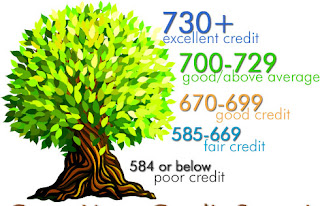And, you have the Dodd-Frank Financial Reform Bill to thank for it.
Starting July 21, 2011, lenders will have to provide you with your credit score if you are turned down for a loan OR are charged a higher rate than the “best” rate they have to offer.
This applies to everyone—mortgage companies, auto dealerships, credit card companies, landlords, insurance agents, utilities—basically anyone who uses a credit score.
In addition to letting you know your credit score, you will receive an explanation of the range of the score and a graph on how your score compares to other consumer scores.
Here are some tips if you are not happy about your score:
- Contact the creditor who sent you your score and ask how many points are needed to get the best rates. If they tell you 15 or 20, it’s fairly easy to get it increased. If it’s 100, you’ve got your work cut out for you.
- If you’re planning on requesting credit in the future, order a credit report ahead of time and see what’s on it. The law allows you one free credit report every year -- www.AnnualCreditReport.com. However, a credit score is NOT included so consider buying your credit score ahead of time --ww.MyFico.com.
- Learn what goes into a credit score and http://www.scoreinfo.org/ has an educational website with great explanations on what influences credit scores.
If you decide to buy your credit score, be careful NOT to accidently sign up for a credit monitoring service which would be billed to you on a monthly basis. You don’t need that right now—you just need to know your score.
Over 2/3 of consumers haven’t ordered their free credit report in the last 12 months. Even if you aren’t applying for credit—you need to know what’s on your report!






